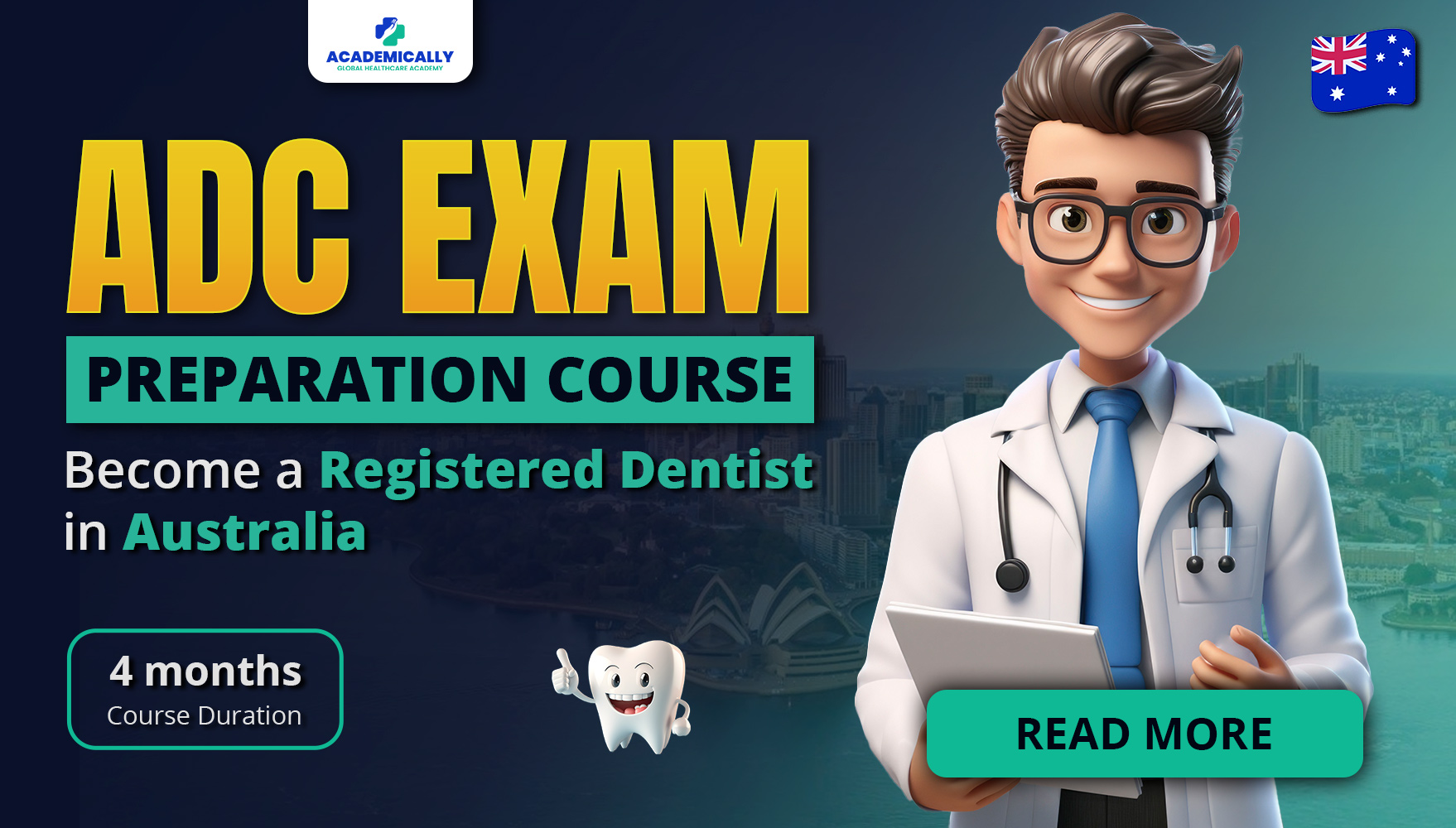Introduction
For aspiring dental practitioners looking to practise their profession in Australia, understanding the registration process is crucial. The Australian healthcare system maintains high standards to ensure the safety and quality of patient care.
This blog will serve as a comprehensive guide to help you navigate the intricate process of dental practitioner registration in Australia.

Dental Board of Australia: The Gatekeeper
The Dental Board of Australia plays a pivotal role in the registration process for dental practitioners in the country. Here are some of the key functions of the Dental Board:
Registering Dentists and Other Practitioners
The Dental Board is responsible for registering various dental practitioners, including dentists, students, dental specialists, dental therapists, dental hygienists, oral health therapists, and dental prosthetists.
Setting Standards
They develop and enforce dental professional standards, codes, and guidelines, ensuring quality and safety.
Handling Complaints
The Board manages notifications, complaints, investigations, and disciplinary hearings, ensuring ethical and professional conduct among practitioners.
Assessing Overseas Practitioners
They evaluate and assess overseas-trained dental practitioners who wish to practice in Australia.
Accreditation
The Dental Board also approves accreditation standards and accredited courses of study to maintain the quality of education for dental professionals.
State and Regional Boards
The Dental Board of Australia collaborates with State and Regional Boards, each representing specific geographical areas.
These boards make individual registration and notification decisions while adhering to national policies and standards the Dental Board of Australia sets. It's essential to understand the specific board responsible for your location:
- New South Wales (State)
- Australian Capital Territory, Tasmania, and Victoria (Regional)
- Northern Territory and South Australia (Regional)
- Queensland (State)
- Western Australia (State)
- Registration Categories
Dental practitioners can fall into various registration categories based on their training, qualifications, and experience. The primary categories include:
General Registration
This category covers dentists, dental hygienists, dental prosthetists, dental therapists, and oral health therapists.
Specialist Registration
Dentists can opt for specialist registration in various fields, such as orthodontics, oral surgery, and periodontics.
Limited Registration
This category includes subcategories like postgraduate training, supervised practice, teaching, research, and working in the public interest.
Non-Practising Registration
For practitioners not currently practising but maintaining their registration.
Approved Add-on Courses
These are relevant for dental practitioners considering expanding their scope of practice.
Accreditation of Education Programs
The Australian Dental Council (ADC) is the accreditation authority responsible for accrediting education providers and programs of study for the dental profession.
The ADC assesses dental and oral health education programs against explicit standards, promoting educational quality and improvement.
Getting Registered
For new graduates and overseas-trained applicants seeking general registration, several requirements need to be met, including:
Application Form
Complete the application form for General Registration, which is available on the Dental Board of Australia website.
Proof of Identity
Provide sufficient evidence of your identity, as outlined on the Board's website.
Criminal History Check
AHPRA will conduct a criminal history check. The Board considers specific factors in determining the relevance of an applicant's criminal history to the dental profession.
English Language Requirements
All applicants must demonstrate English language skills, except in specific cases. The Registration Standard for English language skills outlines these requirements.
Professional Indemnity Insurance (PII)
All applicants must have appropriate Personal Indemnity Insurance (PII) in place. The PII Registration Standard provides detailed information.
Immunisation
Applicants may be required to prove their immune status to various diseases.
Overseas Qualified Practitioners
Dental practitioners with overseas qualifications can follow specific pathways for registration in Australia. These pathways include Trans Tasman mutual recognition for New Zealand registrants, eligibility based on qualifications from particular countries, or completing an Australian-approved course or the Australian Dental Council (ADC) examination procedure.
Specialist Dentists
Specialist dentists can pursue specialist registration based on qualifications recognised by the Dental Board of Australia. This may require additional requirements, such as a minimum of two years of general dental practice.
Dental Prosthetists, Hygienists, Therapists, and Oral Health Therapists
The registration process for dental prosthetists, hygienists, therapists, and oral health therapists follows a similar pattern to dentists. They can also apply for registration under Trans Tasman mutual recognition or through the Australian Dental Council (ADC) assessment process.
Conclusion
Navigating the dental practitioner registration process in Australia requires a comprehensive understanding of the requirements and pathways available.
The Dental Board of Australia, State and Regional Boards, and the Australian Dental Council play crucial roles in ensuring the quality and safety of dental practice in the country.
If you are considering a career in dentistry in Australia, this guide should serve as a valuable resource to kickstart your journey towards registration.
Fill up this form for a free one on one counselling session.




